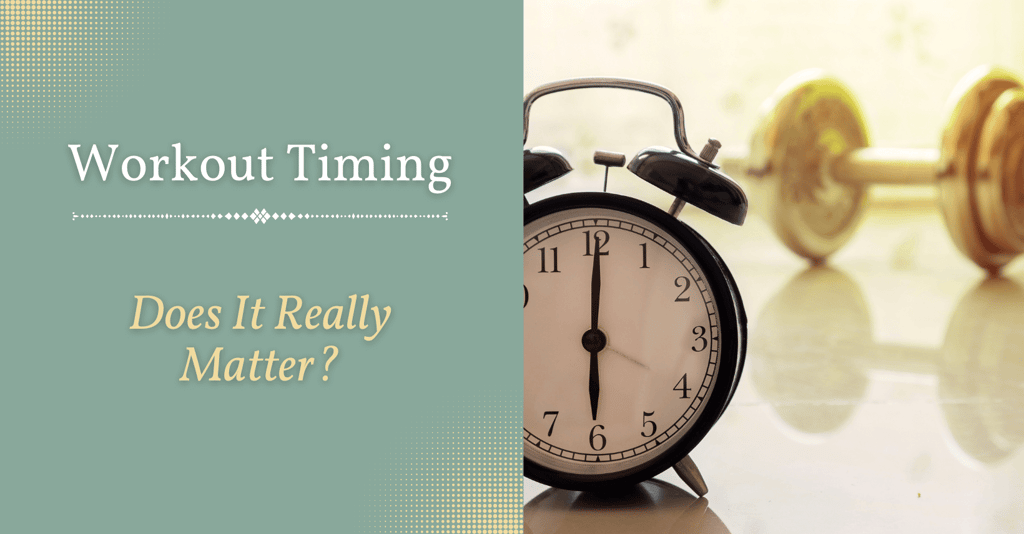Add your promotional text...
Does the Time of Day You Work Out Actually Matter?
8/26/20233 min read


When it comes to working out, you have your preferences. Are you an early bird, ready to hit the gym before the sun rises? Or do you prefer to exercise in the afternoon or evening? But does the time of day you choose to work out really make a difference in terms of your fitness goals and overall health? Let's delve into the science behind this question and explore whether timing truly matters when it comes to your exercise routine.
Consider Your Circadian Rhythm
Your body operates on a natural 24-hour internal clock known as the circadian rhythm. This biological clock influences various physiological processes, including your body temperature, hormone production, and even cognitive function. It's widely believed that your circadian rhythm can impact the effectiveness of your workouts depending on when you choose to exercise.
Are you a morning person? Advocates of early morning workouts argue that exercising at this time can help jumpstart your metabolism, setting a positive tone for the rest of your day. This is partly due to the fact that your levels of cortisol, often referred to as the "stress hormone," are naturally elevated in the morning. Cortisol can aid in fat metabolism and provide an energy boost, potentially leading to more effective fat burning during your morning workout. Additionally, morning exercise has been linked to improved mood and increased adherence to workout routines, as it's less likely to be disrupted by unexpected events that often arise later in the day.
On the other hand, if you prefer afternoon or evening workouts, you might find that your body temperature tends to peak around mid-afternoon. This increase in body temperature can result in improved muscle function, flexibility, and strength, making it an ideal time for more strenuous workouts. Moreover, your body's production of testosterone, a hormone crucial for muscle growth, tends to be higher in the late afternoon and early evening, potentially enhancing the results of your strength training sessions.
If you have any questions or need some assistance, feel free to submit a comment or send us a message here.
*In Conclusion, It's About You
So, does the time of day you work out actually matter? The answer is a resounding "it depends." While there is scientific evidence to support the potential benefits of morning or evening workouts, your individual variability and lifestyle factors play a significant role in determining the best time for you. The most important aspect is consistency – finding a time that suits your schedule and preferences, and sticking to it. Ultimately, the benefits of regular exercise will far outweigh any potential advantages gained from timing your workouts perfectly. So lace up your sneakers, choose a time that works for you, and get moving – your body will thank you, regardless of the hour.
Remember, You Are Unique
While the science suggests that certain times of day may offer specific benefits, it's important to recognize that your individual variability plays a significant role in determining the optimal workout time. Genetics, lifestyle, and your personal preferences can all influence how your body responds to exercise at different times.
For example, a study published in the journal "Medicine & Science in Sports & Exercise" found that individuals who identify as "morning people" tend to perform better and experience less perceived exertion during morning workouts, while "night owls" exhibit the opposite pattern. This highlights the importance of aligning your workout schedule with your natural tendencies to maximize performance and enjoyment.
Embrace Consistency for Success
Perhaps the most crucial factor in the timing of your workouts is consistency. Regardless of whether you're a morning person or a night owl, the benefits of regular exercise far outweigh the potential advantages of working out at a specific time. The key is finding a time that fits seamlessly into your daily routine, making it more likely that you'll stick to your fitness goals in the long run.
Consistency with your workout routine also allows your body to adapt and optimize performance regardless of the time of day. Over time, your body becomes accustomed to your chosen workout time, and its physiological responses become more efficient, leading to improved endurance, strength, and overall fitness.


